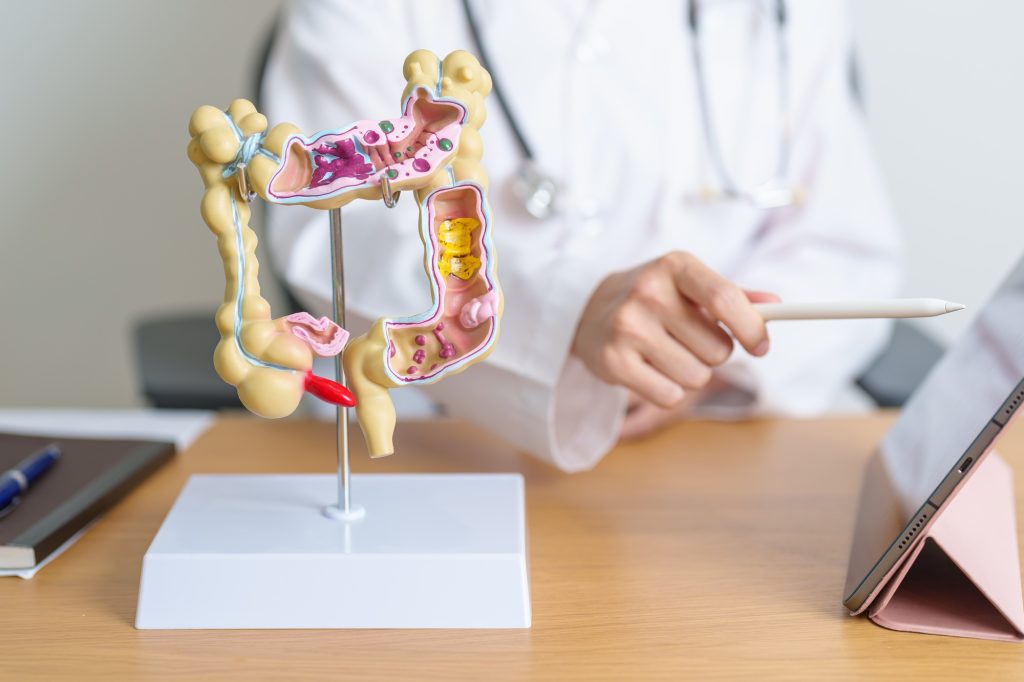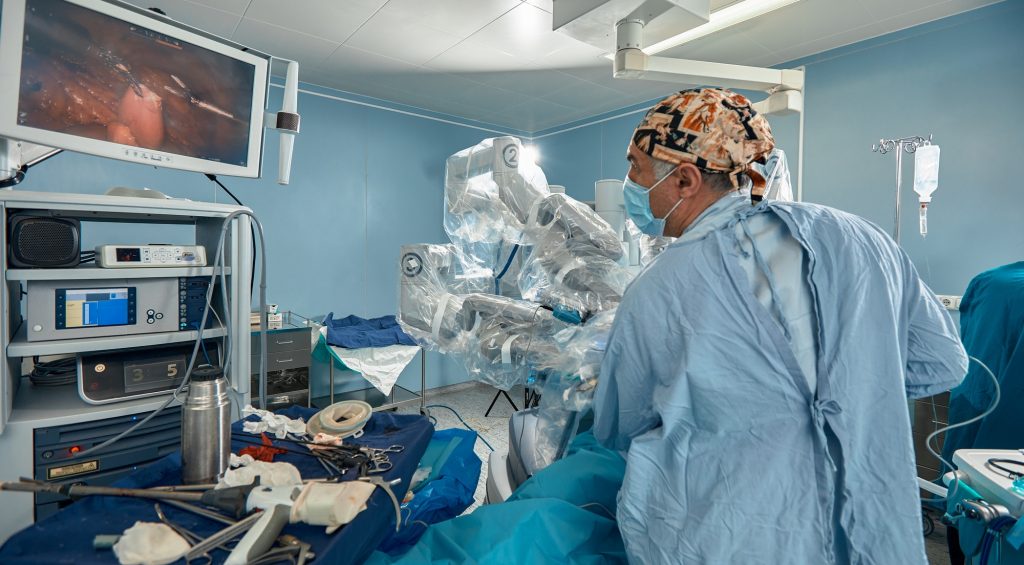Symptoms of Colon Cancer
In its early stages, colon cancer can be asymptomatic, which is why regular medical checkups are key for early detection. As the disease progresses, symptoms may include:
- Bleeding in the stool or occult blood, which may only be detected through lab tests.
- Changes in bowel habits, such as persistent diarrhea or constipation.
- Abdominal pain or a constant feeling of bloating, which may worsen over time.
- Unexplained weight loss and chronic fatigue, unrelated to dietary changes.
- Sensation of incomplete evacuation after a bowel movement, causing ongoing discomfort.
- Presence of mucus in the stool, a less common symptom, but indicative of mucosal alterations in the intestine.
If you experience any of these symptoms, it is important to see a specialist for a timely diagnosis.
Diagnosis of Colon Cancer
At Centro Pad, we use advanced technology to detect colon cancer in its early stages and to plan a personalized treatment. The most common diagnostic tests include:
- Colonoscopy, which allows direct visualization of the colon and removal of suspicious polyps during the same procedure.
- Biopsy, in which a tissue sample is analyzed to confirm the presence of cancer cells.
- CT scan and MRI, used to assess the extent of the cancer and any possible spread.
- Fecal occult blood test, to detect small amounts of blood not visible to the naked eye.
- Tumor marker analysis, such as carcinoembryonic antigen (CEA), which helps evaluate cancer progression.
Advanced Treatments for Colon Cancer in Moncloa-Aravaca
Treatment for colon cancer varies depending on the stage of the disease. At Centro Pad, we offer innovative procedures that ensure greater precision and shorter recovery times.

Robotic Surgery with the Da Vinci System
Robotic surgery is one of the most advanced and precise techniques for the removal of colon cancer. This procedure incorporates all the advantages of laparoscopic surgery—such as minimal invasion and fast recovery—while adding extra benefits thanks to its high-end technology. Its main advantages include:
- Less damage to healthy tissues, due to its high precision and enhanced visualization of the surgical area.
- Less postoperative pain and faster recovery, which shortens hospital stays.
- Reduced risk of complications and lower blood loss, decreasing the need for transfusions.
- Smaller incisions, which improve aesthetic outcomes and reduce the risk of infections.
Robotic surgery with the Da Vinci system represents the evolution of laparoscopy, offering greater surgical control and more favorable outcomes for the patient.
Laparoscopic Surgery for Colon Cancer
Another minimally invasive option is laparoscopic surgery, which allows the removal of tumors through small incisions. Its advantages include:
- Shorter hospital stays and quicker return to normal life.
- Lower risk of postoperative infections and reduced internal scarring.
- Greater precision in removing affected tissues with minimal risk to surrounding organs.
When is Surgery Necessary for Colon Cancer?
Surgery is the main treatment in most cases of colon cancer. It is recommended when:
- The tumor is localized and operable, increasing the chances of a cure.
- There are precancerous polyps that need to be removed to prevent progression to invasive cancer.
- The cancer has advanced but can still be successfully removed without affecting other organs.
- There is a risk of intestinal obstruction or perforation, which can lead to serious complications and severe pain.
At Centro Pad in Moncloa-Aravaca, we carry out a personalized assessment to determine the best surgical strategy for each patient.



